Rock and Roll Hall of Famers return to the road and plan 2022 album
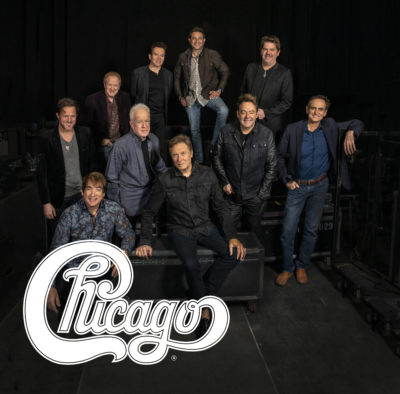
When the great COVID-19 lockdown slammed the brakes on the entire live music industry, like every other touring act, Chicago and its members were forced to head back to their individual homes and wait out the pandemic storm.
For founding member Robert Lamm, this meant beelining to Southern California with Joy Kopko, his wife of 30 years, where the couple sequestered for months. It was both a shock to the system and a welcome respite for Lamm, who has been recording and touring with the Rock and Roll Hall of Fame group ever since he launched it back in 1967 along with Peter Cetera, Terry Kath, Lee Loughnane, James Pankow, Walter Parazaider and Danny Seraphine. For the self-described loner, this metaphysical pause button allowed him to delve deeper into his creative side.
“For me, I knew it was going to be a long time—I just didn’t know how long,” Lamm recalled. “Lately in my life, I haven’t really had time to plan anything, so I just sat down in my little studio at the piano and started playing. I started pulling out ideas that I had stockpiled over the years and exploring that music. I began thinking about how I always wanted to write with this guy or that guy. I just started calling old friends and, in some cases, new friends. I began collaborating using file sharing. That kind of really became my everyday thing. It was so much fun and such an old process of sitting down and finding out what is there—what is it that I have to say? Lyrically, especially, I found out I was getting deeper and deeper in terms of things I wanted to say and do, things I wanted to express, but I just hadn’t had time to explore that before. It was really a wonderful thing for me.”
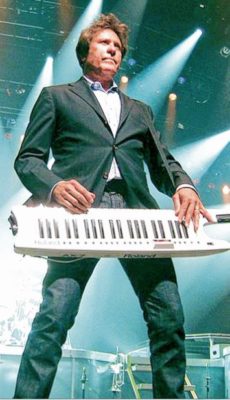
(Photo courtesy of Robert Lamm)
One of the collaborations Lamm struck was with Jim Peterik, a founding member of fellow horn-driven band The Ides of March and later of Survivor. Despite only having met Peterik at a show a couple of years ago, Lamm quickly bonded with his new writing partner. (“His work method and my work method really blended together.”)
Before long, the Lamm/Peterik partnership caught the ear of BMG producer Joe Thomas (Brian Wilson/Dave Matthews Band), who insisted Lamm’s news songs could be the basis for a new label deal for the band, a notion that surprised the septuagenerian musician.
“[Joe] asked me if I thought Chicago might want to record some of these songs and I said I could only ask as it wasn’t really my plan,” Lamm said. “It turned out to be the plan. We’re about halfway through a really interesting album with Joe Thomas as producer and BMG as our releasing label. I guess it’ll drop right after the first of the year. We thought we were done and that there wasn’t any record company interested in late-career Chicago. But they were very interested after they heard the songs.”
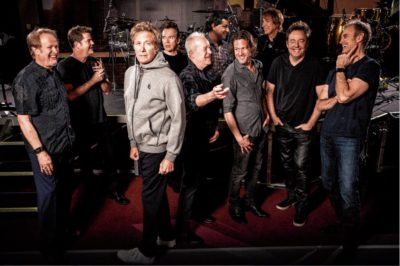
(Photo by Peter C. Pardini”
As an act known for its relentless road schedule, not having missed one year of touring since the beginning, Lamm admits there’ll be the need for him and his bandmates to get together to knock off the rust, starting with a quick 11-show stint of gigs before taking a quick break and then tackling 80 more dates through the end of 2021. It becomes even more challenging when trying to incorporate newer material in with Chicago classics.
“We just kind of talked briefly and we’re going to start with where we left off,” Lamm said. “There are probably a few little adjustments we intended to make anyway in terms of the song lineup, who sings what and where they’re going to stand when they sing it. [Playing new songs] is always a tricky thing. We’re a legacy band, so we have to really take care of our fans when we do this. I know when I go to a show, I want to hear the songs that I’m familiar with of the artist whose concert I’m attending. I don’t particularly want to hear a lot of stuff I’m not familiar with.”
Back To The Beginning
There are many sides to a band like Chicago—a self-described “rock and roll band with horns,” a steady presence on MTV during the early to mid-1980s and an outfit capable of churning out ballads that often find their way into wedding vows and prom themes (I have personally experienced the latter). And while the identity of this group can be debated, the one indisputable fact is that this outfit has enjoyed an unbroken string of longevity that not only dates to its 1967 founding, but the release of its 1969 debut Chicago Transit Authority.
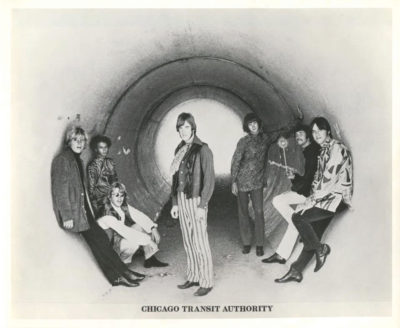
Over the course of the band’s career, Chicago had amassed an impressive canon over their five-plus decades of playing together; in addition to carving out a respected live show that’s developed out of a combination of an unparalleled work ethic and relentless time on the road. Chicago has sold more than 100 million records worldwide while amassing 47 gold and platinum records, along with 70 charting songs.
Driven by the four founding members—Robert Lamm (keyboards, vocals), Lee Loughnane (trumpet, vocals), James Pankow (trombone) and Walt Parazaider (woodwinds)—the band has toured and not missed a year of playing live since the beginning. Parazaider’s Alzheimer’s disease diagnosis back in April of this year led to his coming off the road and having his role filled by saxophonist Ray Hermann. Lamm found out shortly after it was announced.
“Walt’s wife texted us and I had an exchange with him,” Lamm said. “It was not too long after it was discovered and he was already under treatment and therapy. We’re hoping for the best. We’re sort of at the age when we’re really noticing that certain people are not around anymore. It’s the passage of time and life.”
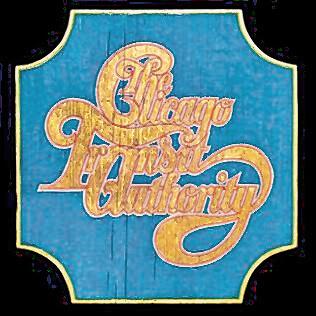
Pre-pandemic, the band’s last tour focused on recreating 1970’s critically and commercially successful sophomore bow Chicago II, a case of giving the people what they want.
“We were out performing with a 10-man line-up and calling the tour, ‘Chicago and Their Hits,’ which is a bit of a misnomer because we were not just doing hits. We were doing songs that we wanted to do,” Lamm said. “There’s very little in the Chicago repertoire that’s performable on a night-to-night basis that most people are not familiar with. Even if you’re not a fan, you could hardly avoid Chicago’s stuff on the radio for at least four decades. Even now, certain aspects of the repertoire—the music is played somewhere in the world constantly. We’re very lucky.”
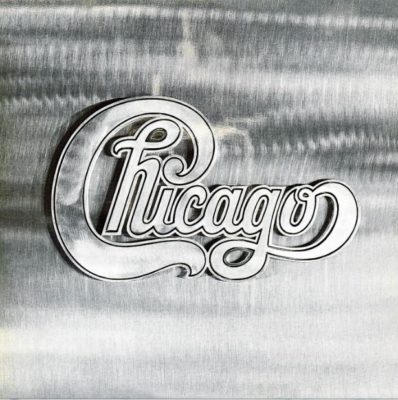
For those looking for a more in-depth examination of the band’s long and illustrious history, Now More Than Ever: The History of Chicago is a solid jumping-off point. The award-winning documentary, released around the time the band was receiving its 2016 induction into the Rock & Roll of Fame, perfectly chronicled the ups and downs of this wildly successful group. For Lamm, the organic way it came about was what helped define the end result.
“The director/cameraman was Peter Pardini, a then-recent graduate of the UCLA Film School at the time. He happens to be the nephew of Lou Pardini, our other keyboardist and vocalist. Peter traveled with us quite a bit,” Lamm explained. “For a band this late in their career, we were still doing very interesting projects and returning to Europe after being away for 25 years, along with touring through Asia, and a number of other things. Peter was always around with a camera. Because he was sort of family, we were very comfortable with him being around. Every once in awhile, he’d ask to interview us in a way where he’d be off camera. That was a very comfortable situation and after a short while, we became much less self-aware and were very relaxed. As a result, after all these hours and a couple of years, he got us to talk about things we generally weren’t asked about and didn’t particularly talk about. For me, a lot of it is talking about the past, which is not something I particularly think about. I’m usually thinking about now and tomorrow.”
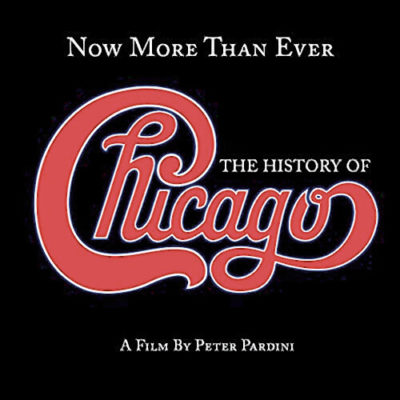 Chock full of vintage footage balanced by more contemporary interview segments, Now More Than Ever not only captures the band’s commercial triumphs, but shone a light on the brilliance of late guitarist/founding member Terry Kath. It also addressed the fissures in the band in the post-Kath era that included a number of personnel changes, most notably that of vocalist/bassist Peter Cetera, who declined to be interviewed for the film. And while the three years before Cetera’s departure coincided with Chicago getting dropped by CBS, getting picked up by Warner Brothers subsidiary Full Moon Records and scoring a string of David Foster-produced Top 20 hits, less emphasis was placed on the band’s horn-driven sound and the group wound up becoming known for its power ballads. The friction that came out of this kind of success is something Lamm has a considerably different perspective about decades later.
Chock full of vintage footage balanced by more contemporary interview segments, Now More Than Ever not only captures the band’s commercial triumphs, but shone a light on the brilliance of late guitarist/founding member Terry Kath. It also addressed the fissures in the band in the post-Kath era that included a number of personnel changes, most notably that of vocalist/bassist Peter Cetera, who declined to be interviewed for the film. And while the three years before Cetera’s departure coincided with Chicago getting dropped by CBS, getting picked up by Warner Brothers subsidiary Full Moon Records and scoring a string of David Foster-produced Top 20 hits, less emphasis was placed on the band’s horn-driven sound and the group wound up becoming known for its power ballads. The friction that came out of this kind of success is something Lamm has a considerably different perspective about decades later.
“Hindsight is a great view, because somehow we lived through that. But, I also have come to learn from that experience. I really feel that David did what he was hired to do, which was almost impossible because he was taking a band that had been very successful—internationally. But we were down for the count, as far as our career was concerned, for a number of reasons,” the Brooklyn native said. “But, he did what he had to do and he did it the way a good producer does it. He makes the decisions. He gets the music written and produced. He gets the music performed and if he has to bring in a session player, he does that because time is of the essence. And time was of the essence. I think everything he did, he did right. Personality-wise has nothing to do with it, because it was really about getting the music done and getting it done to sound as great as he could get it. He did what he was supposed to do. I was really troubled going through it. But now I look at it and think that it didn’t kill me and it all worked out okay. I have nothing but respect for David.”
Rock And Roll Hall Of Fame Recognition
While Lamm’s view of Chicago’s 2016 induction into the Rock & Roll Hall of Fame provided quite a bit of self satisfaction (“I felt vindicated for the band. I was very happy for the band. But none of that compared to how much fun it was to actually be in Brooklyn rehearsing and meeting some of the other inductees,”) Cetera’s decision to not show up alongside the band was a bit puzzling to Lamm.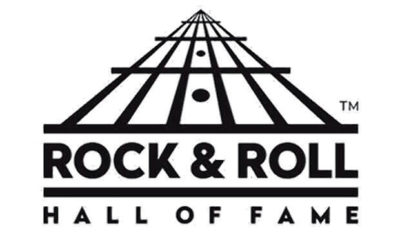
“I’ve talked to Peter off and on and met with him over the years. I didn’t realize how intensely he felt that he could never, for any reason, stand or play with the band again—except on his terms,” Lamm said. “I just didn’t understand that. I don’t dislike the guy or anything like that. I think he’s a good and nice man. He’s a great bass player and no one can argue with the beauty of his voice and singing. But I didn’t understand and don’t understand the intensity of his feelings. But I’m not at liberty to say what he told me.”
Looking Forward
The latest juncture in Lamm’s career found him hitting the reset button on his creative pursuits. During his pandemic-fueled downtime, the Brooklyn native did songwriting woodshopping by doing deep dives into composers ranging from Neil Young and Burt Bacharach to exploring myriad soundtracks from Hollywood’s Golden Age. These efforts have yielded fruit in the shape of a potential solo effort on BMG that may get released next year.
“As I was inundating Joe Thomas with these songs, he said after this album comes out he’d produce my solo album for BMG,” Lamm said. “I asked him if he was sure that BMG would want it and he said, ‘Believe me, they’re going to want it.’”
As for Chicago’s longevity. Lamm’s feeling is that it comes down to the basics.
“I credit the songs and the music. Obviously, the sound of the band is appealing to a lot of people. The way the horns are used is very different than what other bands do. The idiosyncrasies of the way [they sound]—and believe me, I really had a chance to consider that when we did Chicago II. Those aren’t even songs—those are compositions,” he said. “Who knows why ‘Saturday in the Park’ is so popular? I think that when I was inducted into the Songwriters Hall of Fame, I was of course asked to do something from Chicago, which I did. I think I performed ‘Does Anybody Really Know What Time It Is?’ and I rehearsed with a New York session band, which was the back-up group. Even those guys said, ‘It’s a great song man.’”


















